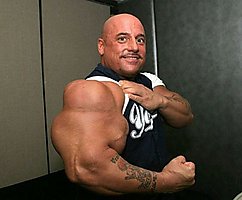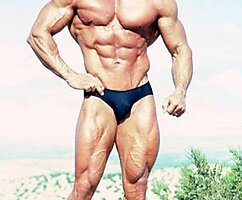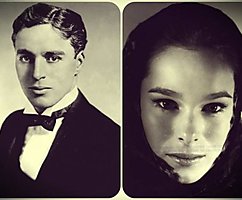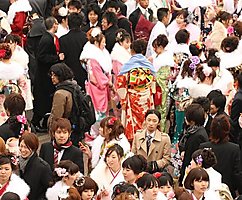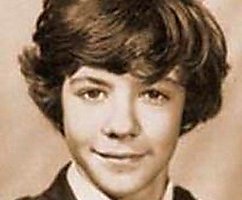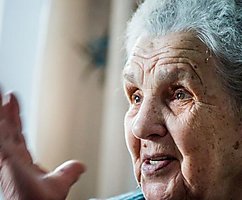You - it's your morals
 Bashny.Net
Bashny.Net
What am I? Where is my I? In the head? In the stomach, where it is believed Buddhists living soul? And from what it is - my Self, your I?

To know I'm his, enough to decide with your hobbies, goals and ambitions
But the romantic thesis is that our identity is formed moral principles, and to give them up, man loses himself unexpectedly supported scientists. Faktrum publishes an abridged translation of an article of the American psychologist Nina Strominger, written for the magazine Aeon.
blockquote> One woman - let's call her Kate - woke up one morning in his bed and was surprised to find that a number is unknown man
Kate Capgras delusion, in which the patient believes that someone from his entourage (husband, wife, parents, and the like) or of replacing his counterpart. In addition, it suffers from the syndrome Fregoli - the belief that a man is actually a familiar, but it changes the appearance and grimiruetsya as a skilled actor.
Capgras syndromes and Fregoli indirectly tells us that head healthy person has a unique cognitive mechanism , which is so thin and fine-tuned, we of it did not even suspect. This mechanism gives each person individually, and then carefully monitors all the changes taking place with personality. This mechanism is vitally important for almost any kind of human communication from a party to the chatter of family life. Without it, we are fast becoming asocial.

Philosopher XVII century John Locke believed that a key determinant of personality, are personal memories. Why is that? From the memoirs of life to create a continuous outline, unique for each person. But the evidence for this factor, at best, ambiguous. People who lost his memory as a result of retrograde amnesia, claim that their identity remains unchanged, despite the fact that their memories were erased. Dementia, which leads to impaired memory, is also not a guarantee that a person's self-perception will change. Caregivers of patients say that, despite the substantial loss of memory, in front of them all the same person as before the illness. If the human body is something that is responsible for its individuality, it is unlikely that the memory can claim to leadership among the possible candidates.
In recent studies, the philosopher Shaun Nichols of the University of Arizona, as well as in my own work expressed arguments that person responsible for the formation of moral values People are not so much concerned with the most memory, memory as possible bind us to each other, and our ability to socialize
In another study, subjects read a story about a patient who suffers from a variety of cognitive disorders, including amnesia, loss of ability to recognize objects, their own desires, and loss of moral compass. Most people responded that the patient is less likely to become like himself, when they lose the moral qualities.
These results confirm the more well-known cases in the history of neuroscience. Phineas Gage, an American construction worker who lived in the XIX century, was seriously wounded when laying railway: an explosion, and his skull pierced metal rod. However, the victim regained consciousness after a few minutes after the injury, and two months later was able to return to an active lifestyle. After being wounded soft and hard-working, Gage turned into a capricious and irritable man who constantly used foul language. It is believed that this injury has led to such a significant negative changes in his emotional state, social skills and personality features.
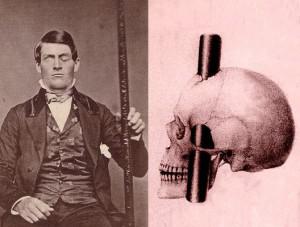
Other types of brain damage can also threaten the person, but have less of an impact on her. In "Lost Mariner" Oliver Sacks describes the case of Jimmy, who almost lost his memory due to Korsakoff's syndrome (disorder in the brain caused by the excessive consumption of hard liquor). Sachs fears that the patient has lost his soul. But his opinion changed when he sees Jimmy behaves during Mass, he takes communion. He recalls the words of the Soviet psychologist Alexander Luria: « The man is not only a memory. It still has feeling, will, sensitivity, morality
So far we have talked only about a third party, that is what makes us think that the other person is not the same as before. We can assume that in the assessment of its own identity other work rules. Maybe in this case, episodic memory is crucial. However, in my new study carried out together with psychologists and Larissa Hayfets Liana Young of Boston College, we have shown that the single most important feature in the assessment of one's own identity is a moral beliefs
Why is our internal mechanism of recognition of the person identifies as moral qualities? We are not the most striking distinguishing features. Those fingerprints, strange behavior, biographies of people: on any of these features is much easier to tell who is who. A bit ironic, but the individuality is less dependent on what distinguishes us from other people, rather than on what unites us.
Think about why for us it is important to distinguish between people. Most animals do not have an internal mechanism for the recognition of personality. But those species that possess them and seek, like people, get to know each other, live in communities. To survive, they need to be united. Evolutionary biologists note that the ability to monitor the person is necessary for mutual assistance or revenge
It is impossible to build a moral and formal presentation of the system without personality. Thomas Reid, a philosopher of the XVIII century, noted that the foundations of justice - rights, obligations and responsibilities - are impossible without identifying the person as a certain personality. If a person has no binder yarns between the various moments of his life, the future people can not be responsible for the actions of man today. Our identity recognition engine operates at higher gears, when certain crimes are explained by the passion, the influence of any substance, clouding his mind. If a man was beside himself and out of his mind during the commission of a crime, how to identify the perpetrator and who is held responsible?
moral qualities - important measurement by which we judge and choose our social partners
The virtues often mentioned in obituaries than achievements, abilities and talents
The mechanism of recognition focused on the identification of the person is the moral qualities, because it is the most important type of information that we can get about the other person. But we still talked about issue in the reverse order. We do not want to say that the personality is formed around some set of moral qualities. But morality necessitates the idea of individuality, gives it life, gives it the right to exist. If we did not have conscience, we would have been no need for individuality. The people are very bulky and complex social and moral system, and accordingly, bloated egos.
«Know thyself" - is unfounded, cheap platitudes that many times tried to recycle and rethink, but it is still terribly empty
Source: T & P
blockquote>
via factroom.ru
Tags
See also
Yatran
Never say that to your man!
When parental love is unreasonable
Your family is Your subconscious
20 characteristics of women with whom not to mess
9 signs of a real relationship
About salt terms chemist
Ardo: The appearance of the girls from the refrigerator - an important event in the life of every man
17 cats, who wanted to spit on is your opinion
3 bright books that teach self-control



